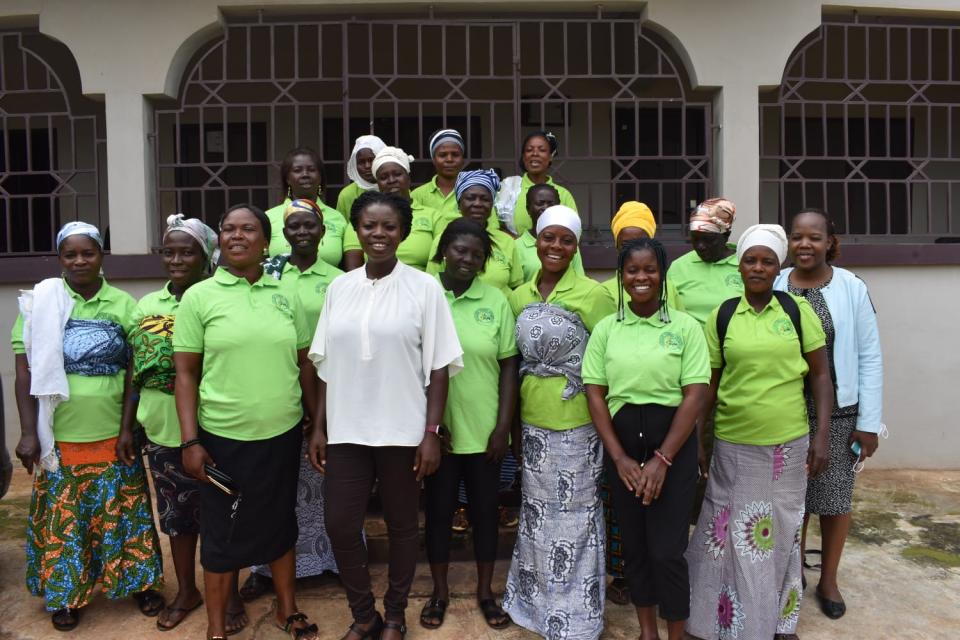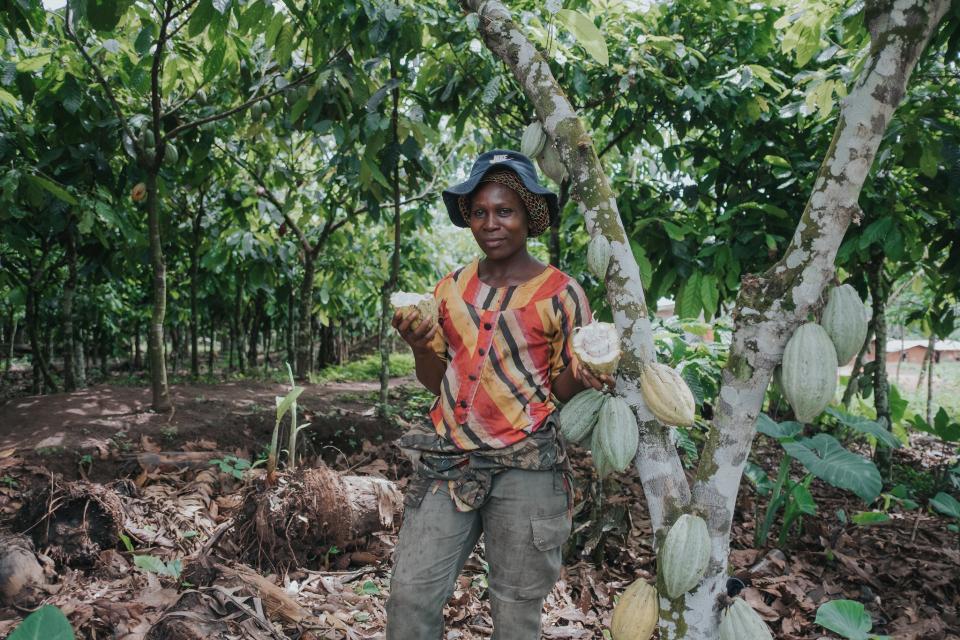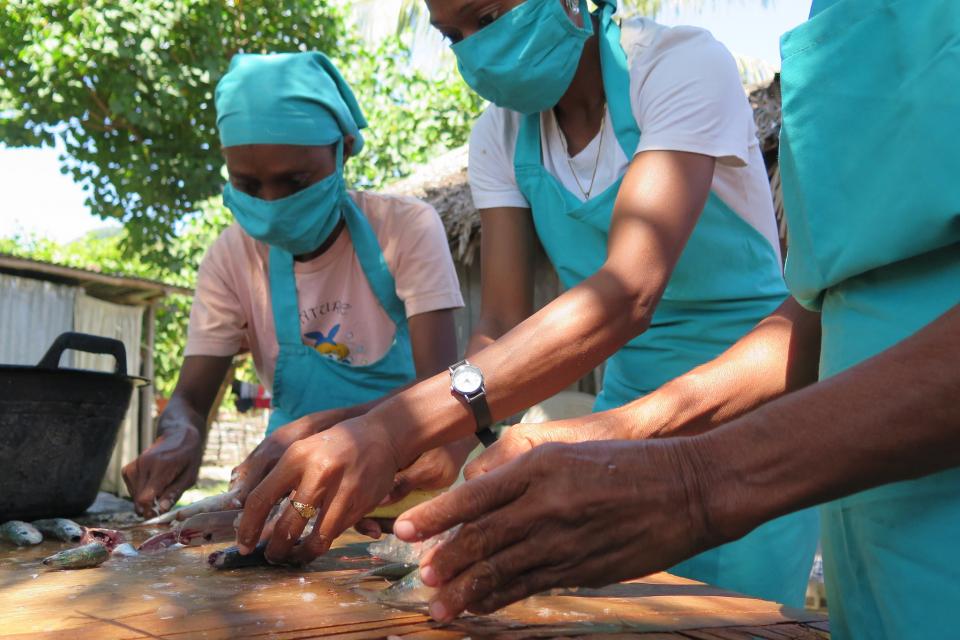How and why women participate in the downstream rice value chain in Uganda
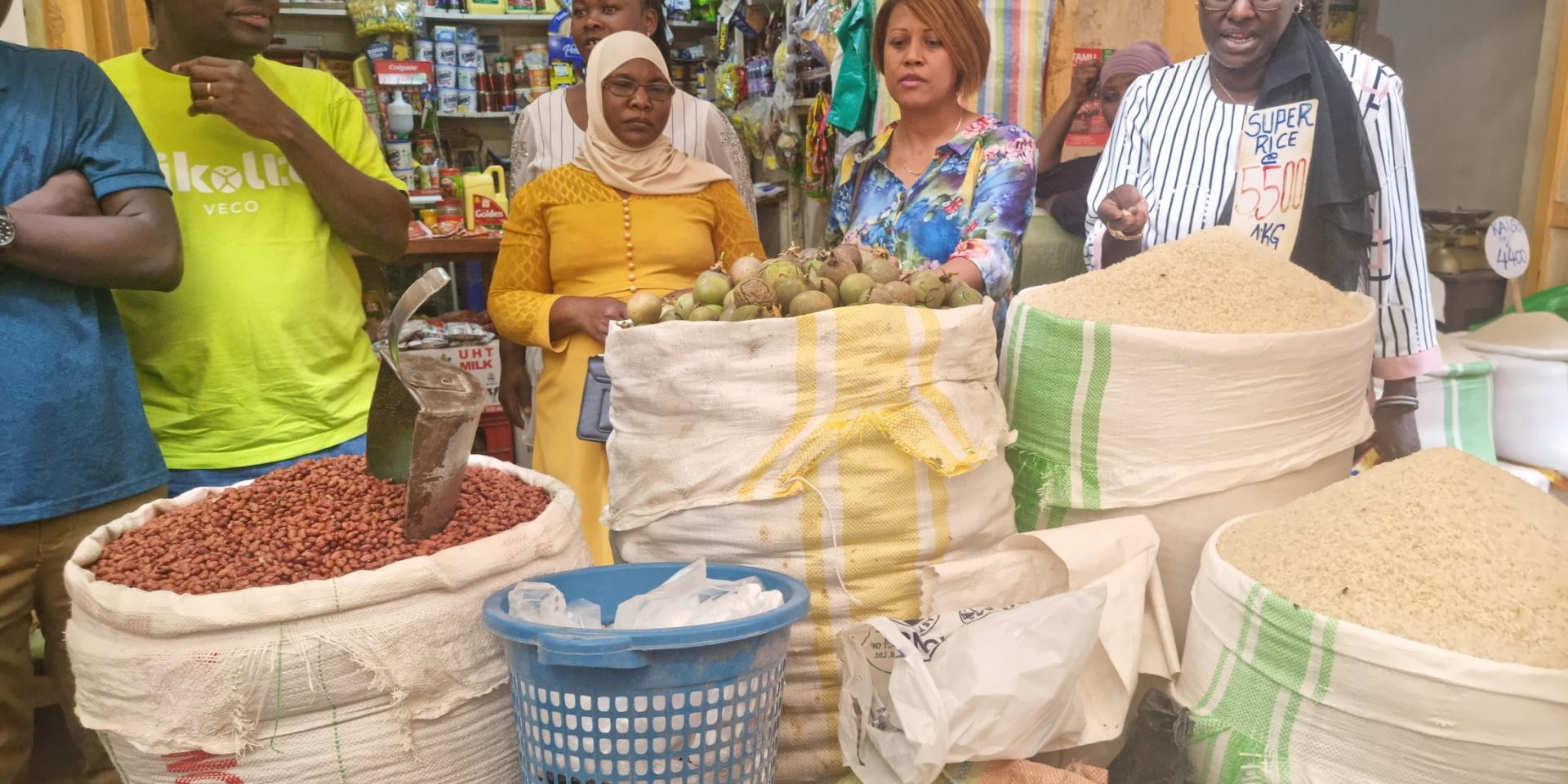
In Uganda, rice production and marketing present lucrative business opportunities. However, while women provide most of the agricultural labor, men dominate the commercial and lucrative nodes of the value chains.
Using the stories of women participating in the rice value chain, this research illustrates that the gains or losses experienced by women are associated with factors such as the structure and nature of the value chain, the terms and conditions under which women participate, and pre-existing inequalities in control over resources and decision-making power.
Why is it easier for women to trade and market rice, but not milling?
Conducted in 2022–23 within the context of the project on Gender and empowerment inquiry into the downstream rice value chain in Uganda, in the eastern region of Uganda, confirms that the engagement and participation in the downstream nodes of the rice value chain is unequal between men and women.
For example, only eight percent of women own rice mills and women laborers are generally relegated to low-paying activities such as cleaning, fetching water, cooking for mill workers, winnowing, and sorting milled rice. A Duncan index of occupational dissimilarity of 32 percent is an indication of the increase in participation that female actors need to match the occupational distribution of men—or that men need to make changes to increase equality.
Using stories to explore women’s roles in lucrative downstream work
We used the stories of seven women—who participated in our project—to investigate the question why women find it easier to engage in rice trading and marketing, but difficult to participate in milling across the various downstream nodes of the rice value chain; and whether other occupations exist for women in these value chains.
Prossy
Proscovia Alejo (Prossy) is from the Soroti district. She has a degree in social work, but after being unemployed for two years, Prossi decided to join the rice business after seeing how it improved the well-being of other women in her community. However, Prossy’s entry into milling was hindered by the lack of information on market operations, including pricing and knowledge of rice quality; lack of contacts with potential buyers; an understanding of business requirements; and most importantly, a lack of capital. Prossy also struggled to convince her husband to take out a loan so she could buy a mill. By working for another miller, Prossy gained business skills such as marketing, decision making, human resource management, resilience, good communication and customer care. Interactions with her fellow employees taught her about the importance of team work and respect for others. Buyers applauded her skills and gave her the confidence to start her own business. Her employer helped convince her husband to buy a rice mill. She also benefited from the support of experienced, rice mill-owners and traders. She is now a miller, employing five men full time and mentoring three women she has introduced to the business of wholesaling and retailing milled rice. The young women buy milled rice from her mill and sell to consumers.
Fauzia
After winning a scholarship to earn her diploma in agroforestry, Fauzia Birabwa could not find a job in Mbale. Her husband supported her to continue her studies, obtaining a bachelor’s degree in environmental science. On completion, she still could not find a job and later started selling secondhand clothes from her home. With advice from a friend, Fauzia switched to selling rice, starting with 30 kg. Her business grew, and she now operates as a recognized retailer within the local market in town where she sells 200–300 kg of rice each week.
Stella
Stella Lunyolo was living in poverty in Mbale and could not obtain sufficient capital to start a substantive business. A small loan from a savings group propelled her into the rice business in 2022. She started by retailing 15 kg of rice from a neighbor’s verandah. Since then, Stella’s business has grown substantially and she operates in the industrial area of Mbale, stocking about 300 kg of rice and sells at a retail shop. She now pays the school fees for her children, and can afford to buy food and other daily necessities.
Jesca
Jesca managed to study until she was 12 years old, but her mother could no longer afford her school fees and she subsequently married at 20 years old. Unfortunately, her marriage ended and she has to work to pay back her dowry of six cows to her ex-husband. She worked in the industrial area of Soroti where rice is milled and traded. She started by working at a milling machine and after saving some money, she started retailing rice herself. She started with 50 kg and now stocks up to 300 kg of rice, renting premises in the industrial area.
Harriet
Harriet Ikilai of Pallisa worked at a milling machine as a machine operator despite discouragement that the job was only meant for men because it involves carrying and getting dirty from rice bran and husks. While she did fear how society would perceive her, the interactions with her colleagues and the gains from the employment encouraged her continue with the job.
Judith
Judith Nambozo is a farmer in Mbale growing rice and maize. However, her household income was not enough to pay school fees and for other necessities. Judith entered the downstream node of the value chain retailing rice to generate additional income. She started with 200 kg of rice, working with brokers to find customers. But she soon realized the brokers were taking a relatively large portion of her margin. She started looking for customers herself and learned to sort and clean rice so that she could sell in high-end markets. She is now a wholesaler-retailer and supplies rice to a hotel in Mbale.
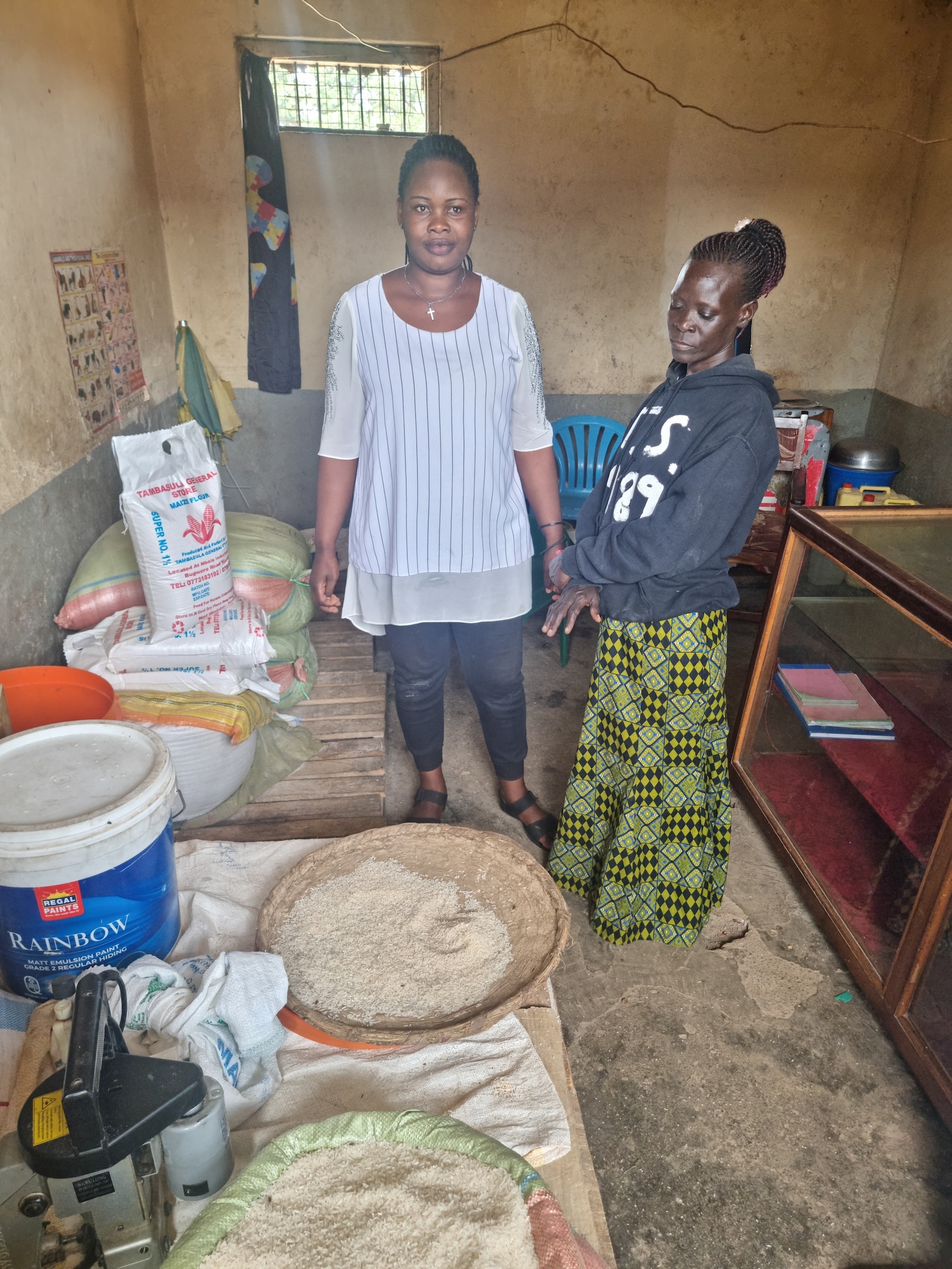
Judith Nambozo (in white top), in her shop, with another woman employee. Photo: Gaudiose Mujawamariya/AfricaRice.
Everlyn
Everlyn Anyumel was a social worker from Soroti who was inspired by a woman farmer who was struggling in a polygamous home. The farmer was a beneficiary of a development project in agriculture Everlyn was working on that provided farmers with training and inputs. With the skills and subsequent income gained from the project, the woman was able to buy 5 acres of land, and invested in growing and selling. Everlyn saw firsthand the challenge of women accessing credit. She now works in the mobile money business, facilitating financial transactions for those in the rice business. She provides a safe and rapid way of saving money and making payments among close and distant partners. She also provides credit to women and men who are involved in rice businesses at an interest rate of 10 percent—lending rates of commercial banks be as high as 36 percent.
Support is key to success in the rice value chain
Many women who are engaged in the rice business indicate the presence of other women as the foremost ‘pull factor’ into the business. The closed, seemingly impenetrable circle of male millers is a threat to women’s entry. They strongly credit their business success to the early acceptance and inclusion by those who are already active in the business.
The second factor is finance. For most of the women, even starting capital is not easy to raise. A positive aspect about rice trading is that a woman can start small, therefore entry is easier than in milling where a larger capital investment is required. While the starting capital varies by business, it ranges from UGX1.2 million (USD320) for women engaged in selling non-milled rice, to UGX16 million (USD4260) for rice milling.
A third factor to highlight is the role of groups. There are opportunities for organizing in rice trading as farmers can benefit from information services and joint advocacy.
All of the women’s stories illustrate the importance of support from other actors in the value chain, especially other women; the importance of capital and being able to access credit; and of having knowledge and information about markets and business. These skills may also manifest at the household level in terms of increased decision-making power over household finances.
Where are the women now?
The women featured in this research are doing well and their businesses are flourishing. Joyce and Jesca are shop owners and pay their children’s school fees for their children. Jesca’s eldest daughter has completed university, has a job and is building a house for her mother. Joyce has built a house for her parents and is currently building her own house. Prossy has her own mill. Harriet has built a house for herself and her husband, and Fauzia has bought a plot of land and is looking forward to constructing a house. She is also fully supporting two orphans in her own home.
Although these stories cannot be unequivocally considered as evidence of the impact of women’s participation in the downstream activities, they demonstrate the potential that the activities have to improve women’s agency and welfare.
Acknowledgement: This research was financed by the 2021 CGIAR GENDER Impact Platform’s Research Grants for Evidence Generation, Theme 2: Women’s empowerment through engagement in agricultural value chains.
